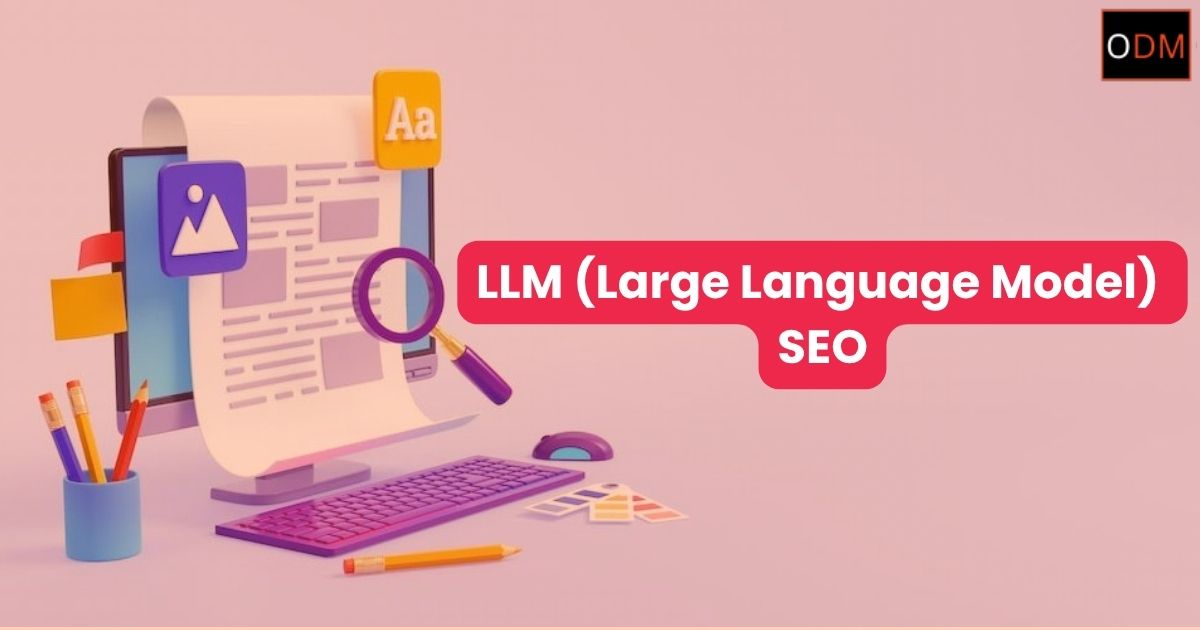What Is LLM SEO?
LLM SEO stands for Large Language Model Search Engine Optimization. It refers to the practice of optimizing online content to align with the way large language models (LLMs) understand and process language. Unlike traditional SEO, which mainly focuses on keywords & backlinks, LLM SEO leverages advancements in AI language understanding to improve how content communicates meaning and context. With LLMs powering many search engines and virtual assistants, content optimized for LLM SEO aims to be clearer, more relevant, and more helpful to both humans and machines.
The rise of LLM SEO is tied closely to technologies like OpenAI’s GPT models, Google’s BERT and PaLM, and other AI tools that analyze and generate text with human-like understanding. Online dot Marketing recognizes how crucial LLM SEO is becoming for brands that want to maintain strong visibility in search results driven by AI-powered algorithms.
Understanding the Basics of LLM SEO
LLM SEO revolves around the concept that search engines are no longer just matching keywords to queries. Instead, they understand language contextually, evaluating semantics, intent, and relevance at a deeper level, and this shift changes the way content creators need to approach optimization.
Key elements of LLM SEO include:
- Natural Language Understanding (NLU): LLMs analyze sentences, paragraphs, and entire pages to interpret meaning beyond exact keyword matches.
- Contextual Relevance: Content must align with the searcher’s intent, which LLMs determine from query patterns.
- Semantic Search: Search engines can link related concepts and synonyms, meaning content should cover topics holistically.
- Conversational Content: Since LLMs power chatbots and voice assistants, content that mimics natural human conversation tends to perform better.
For example, instead of stuffing a page with the keyword “LLM SEO,” the content would explain related concepts like “language models,” “search intent,” and “AI-driven search,” all of which LLMs recognize as relevant.
Traditional SEO vs. LLM SEO
Traditional SEO focused heavily on keywords, backlinks, and meta tags to rank websites, and it operated on algorithms that matched search queries to exact words or phrases on a page. Some key characteristics of traditional SEO include:
- Keyword density and placement
- Link building strategies
- Page speed and technical optimization
- Meta descriptions and title tags targeting specific keywords
LLM SEO takes a broader approach:
- Focuses on natural, conversational language
- Emphasizes understanding user intent rather than exact keywords
- Encourages comprehensive content that answers related questions
- Optimizes for voice and AI-based search interactions
For businesses like Online dot Marketing, adapting to LLM SEO means shifting from keyword stuffing toward creating detailed, informative, and user-friendly content, and this approach not only improves rankings but also increases user engagement and trust.
How LLM Are Changing Everything in SEO
LLM SEO is becoming essential as search engines use these models to refine ranking criteria. Websites optimized with LLM SEO techniques tend to appear higher in results and satisfy user needs better. Large language models have transformed the way search engines interpret queries and content. Their ability to process massive amounts of text, learn language patterns, and generate human-like responses impacts SEO in several ways:
- Better Query Understanding: LLMs interpret complex questions, including long-tail queries and conversational searches, delivering more accurate results.
- Content Quality Focus: Search engines prioritize high-quality, authoritative content because LLMs can assess depth and reliability.
- Improved User Experience: LLM-powered features like featured snippets, answer boxes, and voice search rely on clear, concise content.
- Semantic Connections: LLMs relate different but connected topics, rewarding content that covers subjects thoroughly.
What Are the Parts of a Large Language Model?
To understand LLM SEO deeply, it helps to know what makes up a large language model. Each component enables LLMs to grasp nuances, idioms, and relationships between words, which means SEO content must be clear, coherent, and contextually rich for these models to recognize its value:
- Training Data: Billions of sentences and documents from books, websites, and articles that teach the model language patterns.
- Tokens: The smallest units of text the model processes, such as words or subwords.
- Neural Network Architecture: Layers of interconnected nodes that analyze and predict language patterns.
- Context Window: The span of text the model considers at once to understand context and meaning.
- Fine-tuning: Adjustments made to the model to specialize in tasks like SEO content understanding.
Why LLM SEO Matters More Than Ever
Search engines are rapidly integrating LLM technology, making LLM SEO a critical strategy for online visibility, and brands ignoring this shift risk falling behind competitors who adapt to AI-driven search behaviors. Online dot Marketing stays ahead by adopting LLM SEO practices, helping clients connect with users through meaningful, well-structured content designed for the future of search.
Reasons LLM SEO is vital now:
- AI Dominance: LLMs power many major search engines and virtual assistants, influencing how results are ranked.
- Changing User Behavior: People increasingly use natural language and voice commands, which LLM SEO supports.
- Enhanced Content Discovery: Properly optimized content is easier for AI to find, understand, and recommend.
- Improved Engagement: Content tailored for LLMs often delivers better answers, keeping visitors longer and reducing bounce rates.
Conclusion
LLM, or Large Language Model, is changing the way SEO works. Instead of just focusing on matching keywords, it helps search engines really understand what people mean and what they’re looking for. Because search engines now use these models to decide which content to show, businesses need to start thinking about LLM SEO if they want to stay visible and connect with their audience.
When you create content that fits how LLMs understand language, paying attention to clear writing, the right context, and what users actually need, it not only helps your website rank better but also keeps visitors more satisfied. At ODM, we specialize in LLM SEO, making sure our clients are ready for the way search is evolving.
Getting on board with LLM SEO now means you’re setting up your website for the future, where smart AI understands language deeply and delivers the best answers to users.
What is LLM SEO?
LLM SEO means optimizing your website and content so that it works well with Large Language Models (LLMs) like GPT or Google’s BERT. It goes beyond basic keyword use and focuses on how AI understands language, context, and user intent. Good LLM SEO helps search engines pick up your content more accurately and show it to the right people.
How do large language models impact SEO?
Large language models have changed the way search engines read and rank pages. They don’t just look for exact keywords anymore they look at how well content answers a question, how clear and helpful it is, and how well it matches what a person is really searching for. This means your content needs to sound natural, be well-structured, and cover topics in depth.
Why is LLM SEO important for the future?
Search engines are relying more and more on LLMs to deliver the best results to users. As people use voice search and natural, conversational queries, old-school keyword stuffing won’t be enough. LLM SEO helps your site stay visible by making sure your content is easy for both people and AI to understand. This keeps you ahead of the competition.
How can businesses implement LLM SEO strategies?
Businesses can start by creating clear, detailed content that answers real questions people ask. Use simple language, explain related topics, and structure pages in a way that’s easy to follow. Focus on covering a subject fully instead of repeating the same keywords. Partnering with an expert like Online dot Marketing can also help, as we stay updated on how LLMs and search engines evolve.
What are the challenges of adopting LLM SEO?
One big challenge is changing old habits. Many websites still rely on outdated keyword tricks. With LLM SEO, you need to write more naturally and cover topics in depth, which can take more time and planning. Another challenge is staying up to date because AI technology changes fast. Working with experienced SEO professionals helps you keep up and adjust your strategy as search engines grow smarter.





